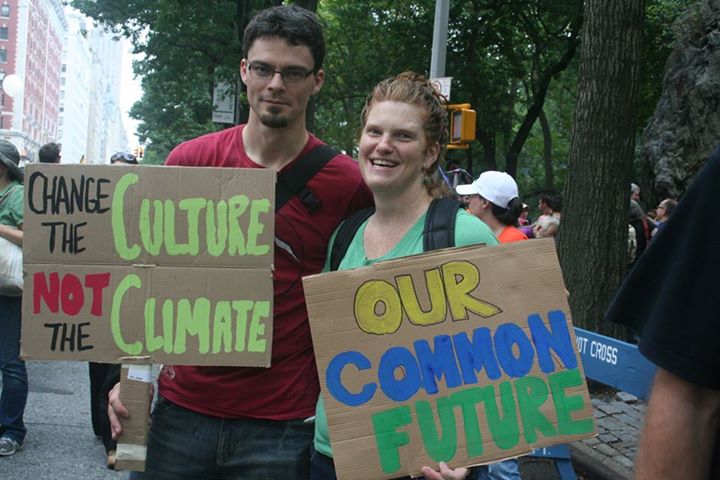Thank you for pledging to keep up the momentum for climate action by talking to your friends, neighbors, and community leaders. We’re here to help and would love to hear how your conversations are going.
Tips and Talking Points for Climate Messengers
Who should I talk to?
The short answer is — EVERYONE YOU KNOW. But…here’s how you may start.
- Start Close to Home.
- Those closest to you will be the most receptive to your message. Start with family and friends.
- Network within Your City or Town.
- Those friendly neighbors down the street, the members of your church or social networks, leaders in local government, the regulars at local farmers market…these are all folks you might come across, and are worth chatting with about the issue of climate change.
- Find Key Voices.
- Global warming hits some people harder than most. Seek out those folks and listen to what they think about the impacts of global warming and the steps we could take to solve the problem before it gets worse. These people include:
- Farmers, Foresters, Sugarers, and all those Working the Land:
- We saw how vulnerable our treasured local farms can be to severe weather during Tropical Storm Irene.
- The maple season is increasingly erratic, leaving the future of Vermont’s sugarers more and more uncertain.
- New insects and diseases are impacting Vermont’s forests. With milder winters some pests can persist where in previous years they died from lengthier winters.
- Winter Sports Enthusiasts:
- A Vermont without snow is not just possible, but likely, unless we take bold action to prevent unmitigated climate change.
- Parents and Grandparents:
- What kind of world do we want to leave our kids and grandkids? That’s fodder for any conversation with a parent or grandparent.
- Young People:
- What kind of world do young people want to grow up to see? Even the youngest Vermonters often have valuable stories to tell. After all, it’s their future we’re talking about.
- Front line Communities:
- Global warming is already causing havoc across the globe. International Organizations, like 350.org and Greenpeace, are working to bring attention to these communities. Check out their websites for more info and let us know if you know of other resources..
- Farmers, Foresters, Sugarers, and all those Working the Land:
- Global warming hits some people harder than most. Seek out those folks and listen to what they think about the impacts of global warming and the steps we could take to solve the problem before it gets worse. These people include:
Tips to be an effective Climate Messenger:
- Make it Personal.
- Why do you care? Explain what climate change means to you, and why your personal values have motivated you to take action. People are motivated by stories more than facts and figures. Here are some tips on story-telling from the folks at 350.org national at http://workshops.350.org/toolkit/story/.
- Meet them where they’re at.
- Remember, most people don’t think about global warming every day. Speak in a way that your friend, family, and fellow community members will understand, by avoiding jargon or acronyms.
- Listen, Inquire, and Be Open-Minded.
- Ask open-ended questions to better understand the person’s thoughts or values around the environment, climate change, and energy. Avoid getting defensive or judgmental if the person doesn’t agree with you on everything. Get input on how we can better connect the real impacts of climate change in a way that resonates with them and the community.
- Be Concise.
- When YOU are talking, less is more. Stick to a few of your most compelling points (or even just one).
Climate Talking Points:
- State the Problem:
- Global warming is happening now. Even here in Vermont storms like Irene are coming more frequently.
- Global warming is quite simply the biggest problem we face today. Severe weather is already impacting communities around the world.
- Outline Solutions:
- Vermont has a responsibility to be part of the solution by reducing our dependence on polluting and expensive fossil fuels.
- We have the solutions we need today – from using less energy through efficiency and conservation to getting our energy from local renewable sources.
- Highlight Opportunities:
- Reducing our dependence on fossil fuels will not only leave a better Vermont for our kids tomorrow, it will save Vermonters money today.
- Vermont has chipped away at our carbon pollution, but our elected officials have back away from ambitious energy legislation that will actually move us forward.
- Sum it Up:
- Now is the time for Vermont to take bold action to reduce global warming pollution.

